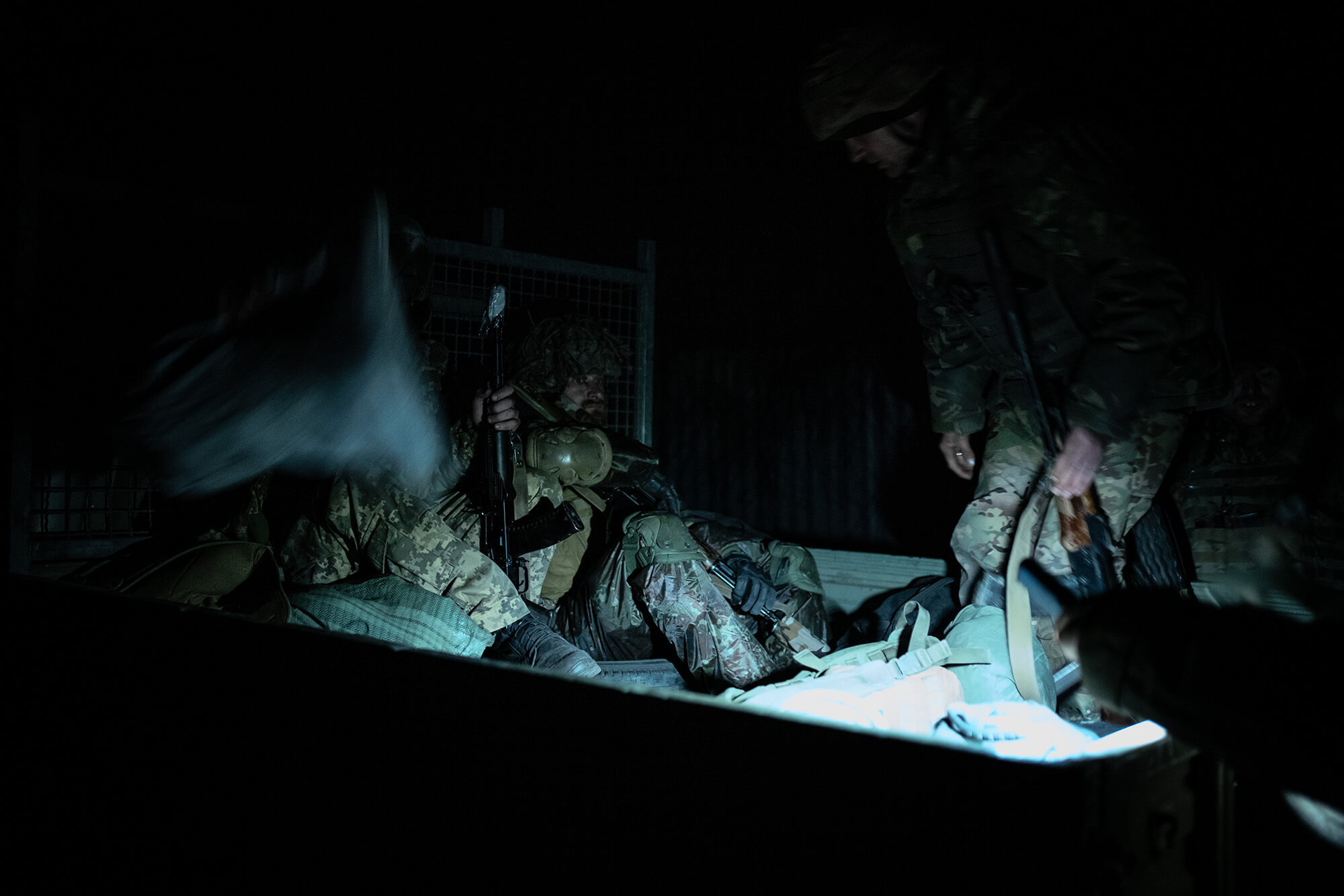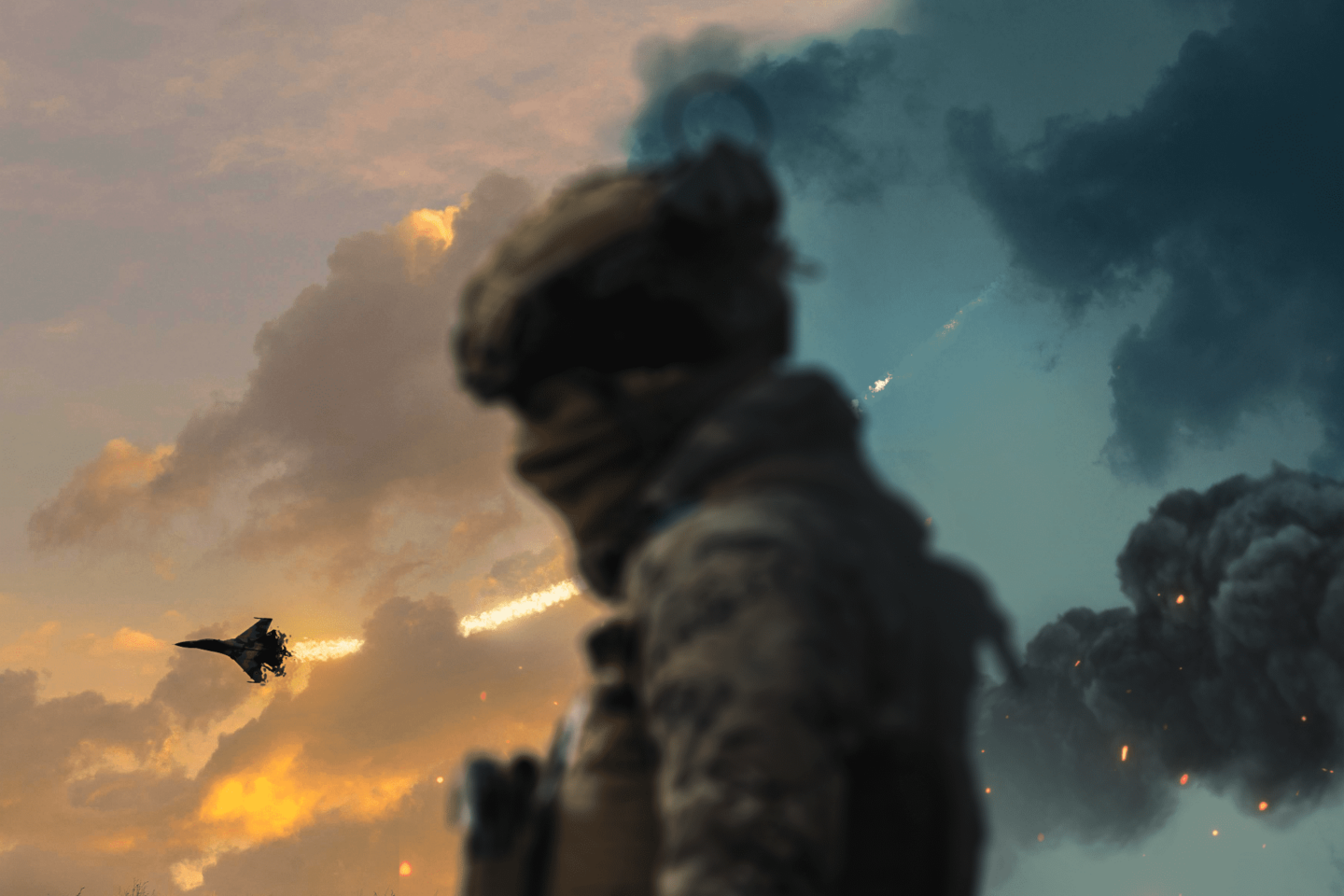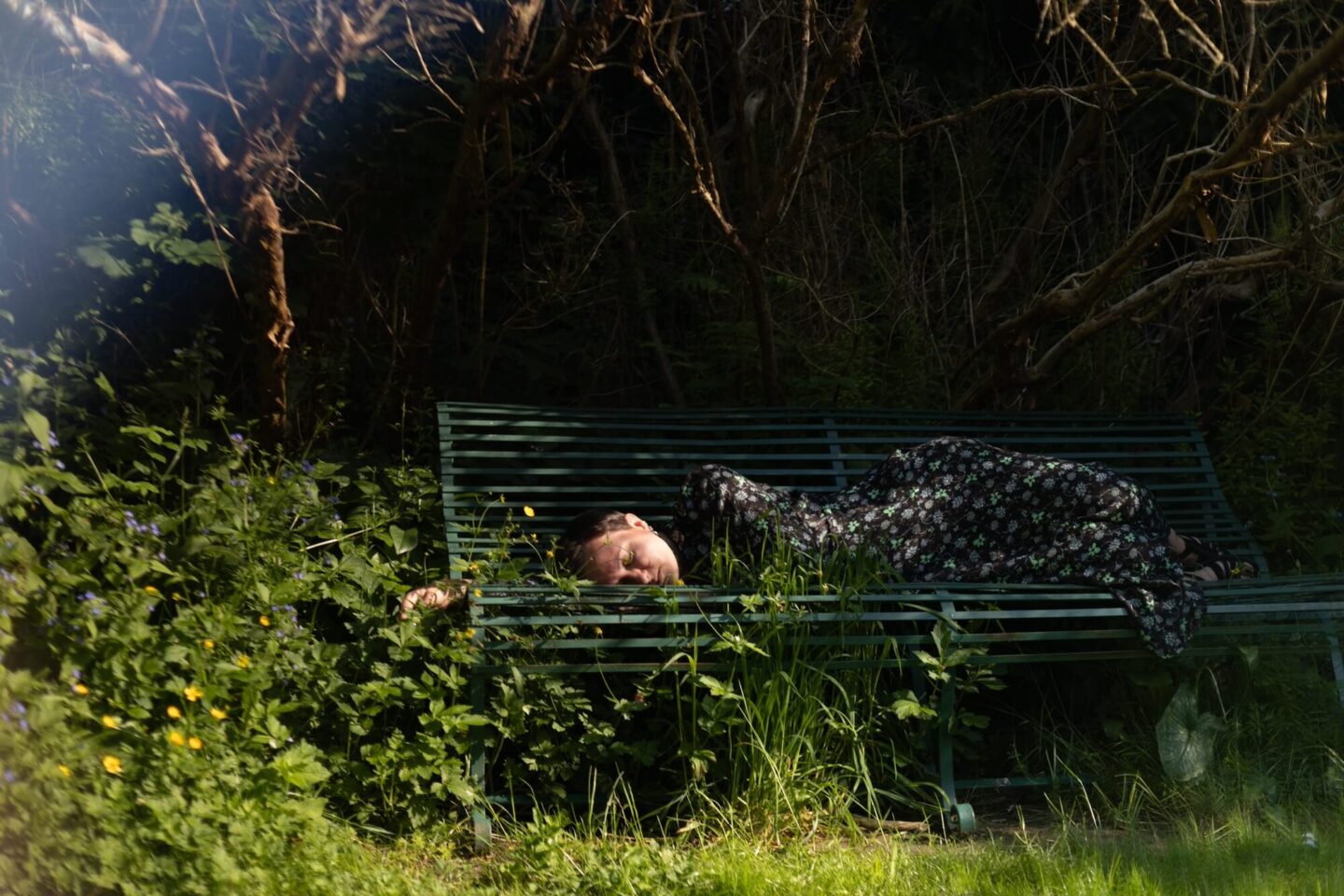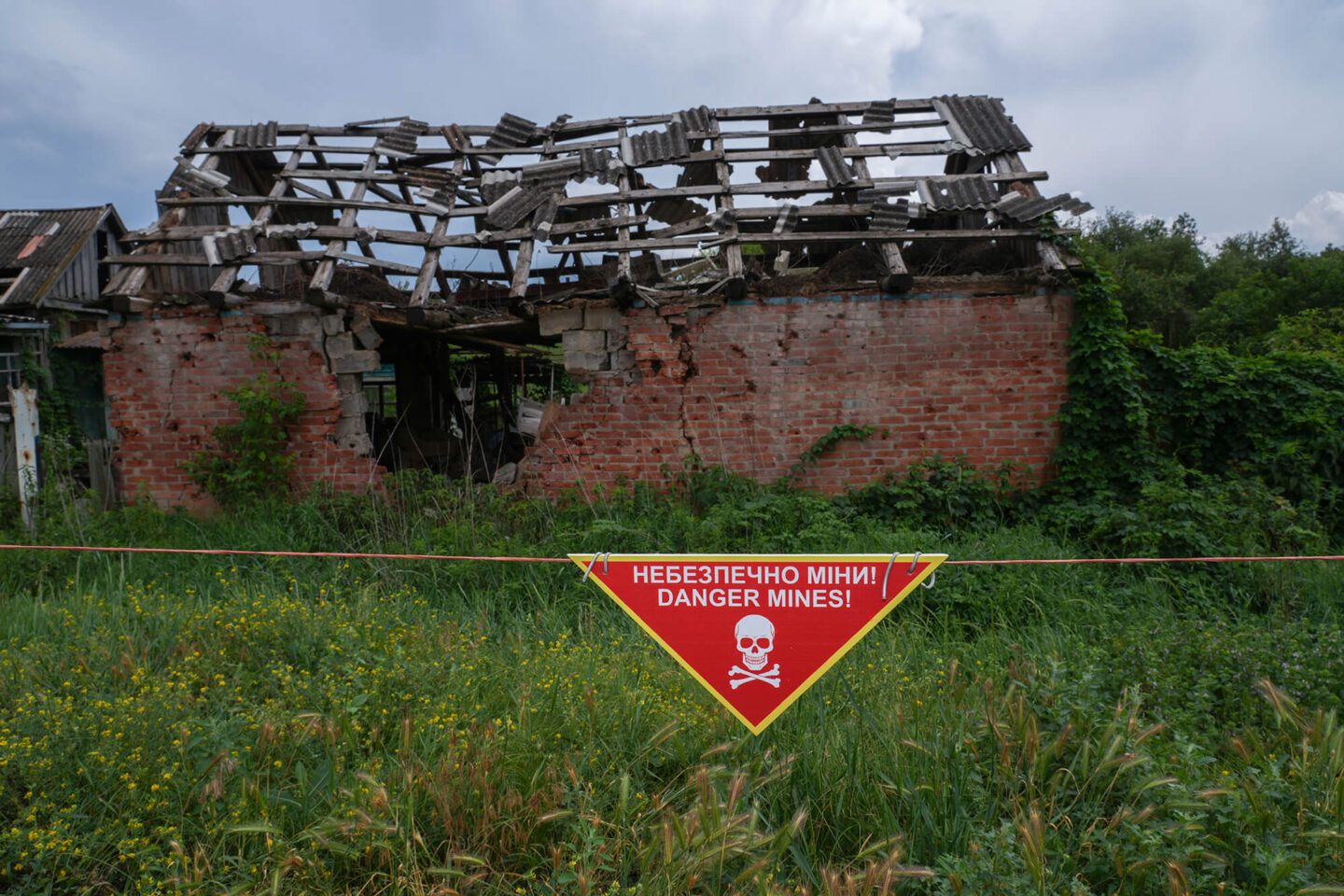After ten months in the army and nine months in the war zone, I appear to forget I used to be a civilian and live normally. I mean, now “the norm” for me is my today life. It seems I will need a new adaptation in the civilian world: for communication, for work, for spending money, for everyday routine. It is hard to explain to those who have never been there. You try to make your life comfortable in uncomfortable conditions: first, these are basic physiological needs, like more or less normal food, a roof over your head, because you need a place to cover from the rain, warmth, hygiene, and with time, you already buy a TV with the boys, for your place, and your comrade gets a gaming console sent to him. In mere months, you just forget it is different somewhere else.
Before the invasion, I lived like everyone else: I was a lawyer in a public organization, getting my second higher education, saving some money, having plans (how funny), going for a vacation. I lived with my beloved one in a rented but cozy flat. In the morning, we would make syrnyky or shakshuka (on my seventh month in Donbas, I revived this tradition here). We dined with home-made shawarma or baked chicken. We watched TV shows, walked with our friends. My communication bubble mostly consisted or progressive and educated people from the communications sector, authorities, creative professions.

I remember well my girlfriend and I having breakfasts out, drinking flat white and walking around the best city (at least twice a hero city already), watching “Dancing with the stars” on Sunday evenings. I remember visiting our parents, our hikes around the city with them. I remember summer or winter trips with the bunch: Italy, Cyprus, Germany, France, and the Carpathians. Kherson, Mykolayiv, Dzharylhach…
How everything changed.
Loyalty
I joined the military on May 19, 2022. I was not a volunteer, I only acted according to the law: I registered at the military enlistment office as soon as the great war began to show the local recruitment center that I was there. So that if I were needed, they knew where to find me. The military enlistment office employee asked me if I was ready to join the army. I answered honestly that not really, but “that’s for you to decide”.
So, after two months, I was here – in the reserve company of a military unit in Kolomyia. It was warm and sunny. We wandered around the territory, played a ball, ate. Nothing was going on. I didn’t know either my position or whom I should lead or obey. It was the same the next day, until this silly inaction made me lose my patience.
They met me with obvious displeasure at the headquarters. But I sat and waited until Mr Major, the man with peculiar army sense of humor, as it turned out later – Chief of Staff of my new battalion, checked through my papers and told me I was to be assigned a deputy company commander of the rifle battalion.
At first, it felt awkward. In fact, I was a commander for all company personnel except for the commander himself. Most of the men were older than me, some of them had already fought in ATO/JFO, some wanted to “cut the moskals’ ears” instead of obeying orders (those ones dropped out after the first hits). So first I just got to know my people, established contacts, learned their characters. Simultaneously, I did all kinds of documentary work, ordered references, and kept journals.

We spent a month in Kolomyia and then went to the task execution area. We were going to the war, but everyone seemed to exhale with relief. We were tired of the formalism of life in a military unit. However, here I got used to the army everyday life: I got used to following orders, working during the day and waking up in a flash at night, if needed. I didn’t feel as a chief yet, but I realized I had some authority.
The days passed similarly in Donbas during the first month. We could hear and see our artillery, we could hear the hits, but it was all not so close. We lived in what we had dug, and washed ourselves in the canal, stayed on guard at night, occasionally hiding from rare hits. But our life was regular, we were 15 kilometers away from the contact line, the weather was summer and comfortable for the life in the trenches and hills over the canal. Everything changed after the first combat mission.
Coolness
My first combat mission marked the second stage of my self-acceptance. We left our canal and moved to the trenches on the outskirts of Kodema village. Without experience, proper self-preparation and necessary knowledge. I won’t describe everything, but our mistakes resulted in bad consequences. The enemy started shelling us the very next day – and we didn’t have enough time to dig in, so many of us first hid in one proper dugout and another less reliable one. Sometimes, shelling went on from 10 am till 5 pm. There were first wounded and killed.
We had to act precisely, helping our company commander, who seemed to be a bit lost just like the rest of us. We had to set tasks to dig trenches, to observe, to put up “secrets” – observation points for several people. Every day, we received updates on the enemy location and advancement, but we still didn’t understand where we should expect them from. People who had left their positions somewhere ahead of ours, passed through us, they filled us with fear and uncertainty. Our company just wanted to flee from that place, but we couldn’t – we couldn’t let the enemy surround the village. At some point, our commander sustained a serious injury, and I had to take over.
I walked around the trenches and looked for allies among neighboring units to establish at least some connection, I helped carry the wounded and the killed, and sought decisions from the commander. I was constantly reporting, apprehensively listening to the hum of equipment, mortar, tank, artillery.



This time strengthened my coolness. I learned to give orders and raise my voice. After that trial, our company was falling apart: soldiers were handing reports for dismissal, looking for all possible diseases, and many were wounded, too. Out of 110 people there were suddenly only 30. I was angry and had to use my authority and my voice to make people take on new positions and dig in. At the same time, I had to restore people’s trust – everyone thought they were going to be deceived and sent to some awful deadly place…
Sensitivity
We were moved to set up the second defense line some 2,5-3 kilometers away from the front line. People worked in shifts: a few days on the positions and a few days resting. We lived in a village close to our positions. At that time, I already acted as a company commander, because after Kodema our commander went to the hospital for a joint replacement. It was hard to work: I was responsible for transport, fuel, people’s welfare, completing tasks, and quality of trenches and dugouts. The village and our positions on the second line were not shelled so heavily, at least until some time, so we could come back to our senses after Kodema and organize our everyday life, put things in order with new people and cars.
Our guys quickly organized our everyday life in those houses. At first, the cook cooked for the whole company, but after a week, almost no one ate a meal together. Everyone took the food to their house, bought some portable stoves and gas cylinders and cooked on their own. I was shocked that almost every house had a decent cook. They cooked borsch, soups, pilaf in a cauldron, shish kebabs, and various types of potatoes. The boys always remembered about those who served their shifts in the trenches, and cooked before their return, so that their tired and hungry comrades didn’t waste time.


Most of the guys from our company were from the western oblasts, mostly Ivano-Frankivsk. It was important for them to preserve, at least partially, their traditions. It is an interesting fact that the village of Rozdolivka, where we lived, used to be inhabited by Galicians in the middle of the 20th century, so a Greek Catholic church started functioning there after Ukraine gained its independence. It was important to my fellows. They met the priest, who didn’t live in the village, and only came for the service. He confessed them and embraced them with his support. Despite the proximity of the front line and almost daily shelling of some parts of the village, every Sunday the church held a service. Every Sunday morning, I was pleased to observe my fighters walking down the streets to church, and then returning to their homes with some relief on their faces.
Recklessness
Digging the second line lasted for a month. Then a combat order arrived, according to which our rifle battalion was attached to a more powerful separate battalion and our new positions were defined. I would say that was when the real combat period started for me and my company. Kodema was kind of initiation, a mistake, may be, that we learned something from. And the village of Yakovlivka, ground zero, clearly formed, dug in, with constant clashes, it was already a classic war.
I can clearly remember when we came to our positions: in the deep of the night, with barely passable mud in the field. No headlights allowed. We went with a NOD in our allies’ car, we were just replacing them (at that time, we didn’t have NODs of that quality, until I found them through various channels). Only clouds and darkness. Occasionally, the “fireflies”, the lighting mines, flew up into the skies. That’s because faggots (we call russians that both among ourselves and via the radio) can hear our car and try to inspect the area where the sound of the engine is coming from under the light. But we were lucky enough to pass.

I recall the times of duty in Yakovlivka with an unexplained masochistic nostalgy. It was, in fact, the hardest time in my life. We went to the positions every day or every two days. Together with the driver, we were passing our favorite “road of death”, covered with mine holes from 82 mm mines and 203 mm shells, which leave holes as large as pools in the ground. We constantly lacked something and had to control everything: fuel reserves in the generators at the positions, the amount of ammunition, weapons, we also had to replace the wounded or even the dead. We had to take care of the discipline, too. There was still a lot of work to do with certificates, vacation lines, and alcohol consumption.
The worst period started during the second month of our duty in Yarkovlivka. The orcs apparently recruited personnel after the mobilization and were tasked with taking Soledar. For that, it was critical for them to force us out of Yakovlivka. In November, they fiercely assaulted all our positions, moving along the trenches meter by meter, simultaneously firing from armored personnel carriers, tanks, mortars, and artillery. We were replacing people every day – we had enormous number of wounded and killed. I remember one of our best fighters. Cold-blooded, courageous. A few weeks before, we spoke with him about his fiancée. He said he was not going to die, but a bullet to the neck cut his life short.
Courage
I remember the face of a young officer with the codename Demon. He was 26 or 27 years old. He was a company commander of the company we were assigned to. He and I were equal commanders of our companies, and we shared most of the decisions, but given that we were assigned to them, not them to us, Demon was in charge on the positions. He had graduated from the military academy and was a staff officer. Before becoming a company commander, he had already proven himself in battles in other areas. Once, in a dugout, he and his subordinate platoon commanders, similarly young guys, told me a story about how they were left with only three men at two observation posts and used Soviet RPGs to fight off both a tank and a Russian infantry attack.

We were in good relations with Demon. However, as a hothead, he could react sharply to my mistakes. But I learned from him, and under Demon’s management my company slaughtered many enemies.
When we were going to the positions with him, he never missed a chance to fire an RPG on the orcs’ observation point or thin out the remnants of their defensive positions from the “Pokémon” (7.62 mm Kalashnikov machine gun). I watched him with interest and some anxiety.
Once, when I was leading a group of people to the positions that had been shelled for quite a long time, Demon went to the trenches to prepare a counterattack and recapture positions previously occupied by the enemy. On my way back, I heard on the radio: “Demon is Cargo 200”. It was a shock for me. I hadn’t known him for a long time, but he became a symbol of this war for me: a young commander who headed the company, where the platoon commanders were (and still are) the same young guys. These are people who lead dozens of others, the role models that will win this war.
Your attitude towards death changes here. The first one – back in Kodema – was a cold shower. I took the corpse myself and it was hard to accept that the alive, intelligent, social creature you had known from a positive side, could turn into a motionless mutilated body in a matter of seconds.
But later, with every new death, you are not so shocked anymore, you get used to this ugly cold fact that people die in war.
Humanness
Once, we took a prisoner. Then, two Wagner soldiers from the assault platoon were attacking our front positions. One of them was killed instantly, and the other one fell after the firefight and did not show up. After shooting through the area, two of our soldiers, undercover, began to move in his direction. They found and disarmed him, spanked him preventively, and bandaged his eyes and hands with tape. There was the order from the commanders to lead him to the evacuation point. He couldn’t move because of his leg injury, so he was actually carried. Our fellows carried him from one position to another, taking him to one of the unload points, where he was met by the company commander and a driver. On the prisoner’s request, he was given water and a cigarette. And then he was taken to one of the houses in the village nearby. “Do you happen to have some vodka, too?” – he asked. He received a light kick, and then he was put back in the car and taken to another village, where he was handed over to the responsible authorities.

It turned out the man had been serving his time and joined Wagner group to regain his freedom. He still had six years to serve. His mother was from Chernihiv oblast, he himself was either from Rostov oblast or from the Krasnodar region, I don’t remember. It was interesting he didn’t panic and tried to speak Ukrainian. He said he ended up in the assault unit, although he lacked both skills and necessary equipment, because it was allegedly his second day on the war. He added that possibly it was better for him to die, because in case of exchange the FSB wouldn’t leave him alone.
Why am I telling you all this? For you to know that this prisoner was not even beaten up badly. We gave him something to drink, something to smoke, our guys carried him for 1,5 kilometers on their backs. None of our soldiers at the positions injured or shot him. And I understand why. Because, despite all hatred, there is something human in my conscripted soldiers, the average people in the civil life, that does not allow for atrocities. Not because we feel sorry for these subhumans, but because such actions disgust us. Because of the usual reluctance for a normal person to look at the blood, hear the screams of the tortured person, and imagine his pain. Because of the unwillingness to kill an unarmed and defenseless person, even if he is a bastard. Because the other one had been killed in combat, without unnecessary delay, killed with weapons in hand. And this one was lucky.
Sincerity
I want home. All the time. Despite the habit and despite my adapting to a new life. The longer I stay here, the more I want to go back. And that’s not only about me. The rate of dismissals for family reasons has been off the charts since the beginning of the service. People suddenly find disabled relatives, guys marry women with disabilities, or become custodians for their grandparents.
Someone says: “How can you leave the boys, quit your tasks? It’s such responsible position, you’ve gone through so much!” Yes, you don’t want to leave your comrades, but you want home more. Or at least to serve somewhere closer to your home, as some staff officer. Life on the war, as much as you can get used to it, still eats away at your strength and depresses you morally.

My return from a short vacation was unbearable—it took me several days to get back to normal.
The fact that loads of fit people are not serving is also depressing. Surely, I haven’t checked the military IDs or certificates of the military medical commission of those men who sit in cafes in Kyiv and drive fancy cars around the city, but the theory of probability suggests that many of them are probably even more fit than my 50-year-old fighters with prostatitis who need to pee in a trench in freezing weather a dozen times per night. Many of those in the rear are more fit than the construction workers, plasterers, and stokers who make up most of the unit and have two or three hernias in their spines.
When I graduated from the military department, our class consisted of three companies of reserve officers. That is approximately 300 people. It is but one year of graduates from one university. And now, I only have one out of four necessary officers, platoon commanders. And there is no one to find, because “it is now hard to find an officer”.
There will be no rhetorical questions. It’s just that I want home even more when realizing all the injustice. I want someone to take over, because I’m sure there is someone to take over.
Everyone wants home. Desperately. And they used every chance. Maybe, one day I will get my own chance, too.
May, 2023.
Translation — Olha Dubnevych
§§§
[The translation of this publication was compiled with the support of the European Union and the International Renaissance Foundation within the framework “European Renaissance of Ukraine” project. Its content is the exclusive responsibility of the authors and does not necessarily reflect the views of the European Union and the International Renaissance Foundation]





